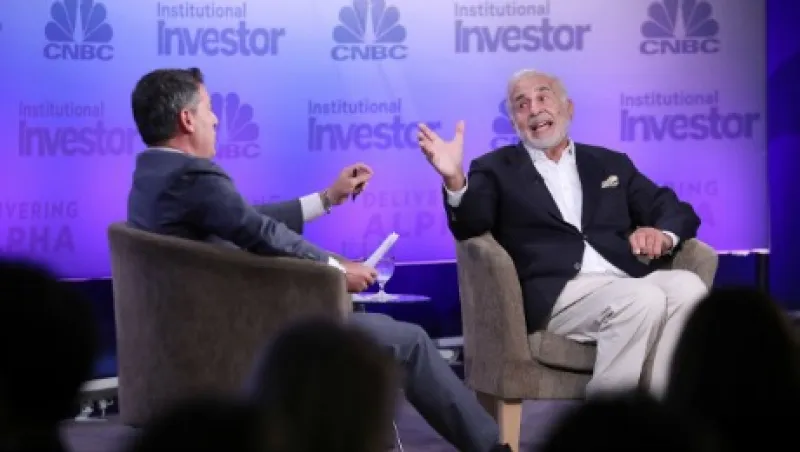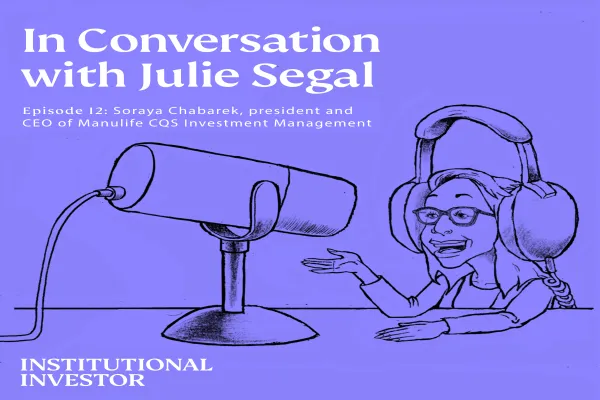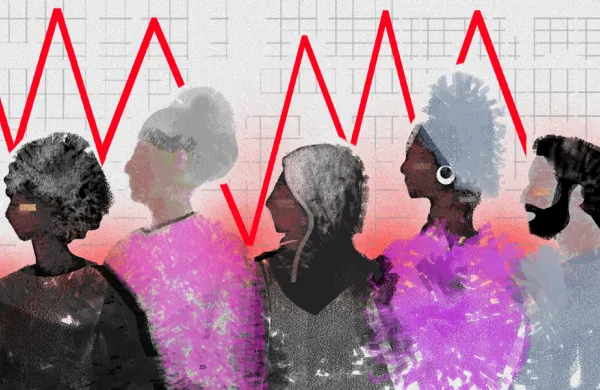Christine Condos has been a cocktail waitress for the past 26 years, something I was surprised to learn when I met her in the audience at last week’s Delivering Alpha conference. “Cocktail waitress” isn’t the kind of answer you expect when you ask, “And what do you do?” while networking at an investment industry gathering.
As it turns out, Condos had a good reason for attending the New York event: She wanted to hear what Carl Icahn had to say. Condos serves drinks at the Trump Taj Mahal casino, an Atlantic City, New Jersey, property that will shut its doors on October 10 and is owned by the billionaire’s New York–based Icahn Enterprises. She’s also part of the UNITE HERE Local 54 union of gaming workers in Atlantic City, whose members have been on strike since July, following what they claim is unfair treatment by Icahn’s company.
Icahn didn’t address the closure of the Taj in his interview with CNBC reporter Scott Wapner. But he thinks the casino’s former owner, Republican presidential candidate Donald Trump, would help workers like Condos. “If Trump gets elected, this economy will be a lot better than if Hillary Clinton gets elected,” Icahn told Wapner. “That I really believe.”
I later asked Condos what she made of Icahn’s comments. “I think what he said was a complete contradiction of what he actually did at the Taj,” she said. “It’s complete bedlam in Atlantic City; they’re talking about a state takeover of essential services. How is it supportive of the middle class?”
Condos added that for middle-class workers like herself, costs such as health insurance and living expenses keep rising; with the Taj’s closure, she’ll be seeking employment in a city that’s barely hanging on. For its part, the state of New Jersey held a job fair for the about to be laid-off casino staff; some 30 businesses showed up to take applications, but work is far from a certainty.
Condos’s views on the economy didn’t differ that much from those of the money managers onstage and in the crowd at Delivering Alpha, even if the latter didn’t lay their concerns at the feet of Icahn and Trump. Again and again, panelists and attendees cited sluggish growth, rising income inequality and misguided monetary policy as reasons for lackluster investment performance.
“I think it’s unsustainable to have central bankers do the only job, the job of supporting the global economy and certainly the developed-world economy,” hedge fund manager Paul Singer, founder of New York–based Elliott Management Corp., said during his onstage Q&A. “Through ideology and other political considerations, presidents, prime ministers and treasury officials around the globe are not picking up the ball.”
Other attendees agreed. “I think everyone is acting very cautiously right now,” Ranjeet Nabha, founder and CEO of Intellia Capital, a New York–based quantitative investment firm, told Institutional Investor. “There’s a higher level of concern about the economy, and it makes investors risk-averse. Generating returns in this market is very challenging. Discovering new alpha is even harder.”
Where investment managers have been unable to perform, a conversation around fees has sprung up with new gusto. As II reported last week, even managers seem to be realizing that lower fees will probably be the new normal if they want to keep investors. But such measures may not be enough. One group of attendees from a public pension fund voiced concern about unfunded liabilities if they can’t start generating positive interest on their fixed-income and cash positions. The fund won’t compensate for that lack of yield if it starts paying 1.5 percent and 15 percent management and performance fees, instead of 2 and 20.
For a room full of Masters of the Universe, speakers and audience members alike were surprisingly short on solutions. Stephen Schwarzman, co-founder, chairman and CEO of New York–headquartered alternative-investment titan Blackstone Group, put it succinctly in his Delivering Alpha interview: “We have to get these other macro things right for the benefit of everybody.”
In macroeconomics, the term for this situation is pushing on a string — the point at which monetary policy can’t entice further growth. “We are, in varying degrees, closer to pushing on a string,” Ray Dalio, founder, CEO and co-CIO of Westport, Connecticut–based hedge fund giant Bridgewater Associates, said during a panel discussion.
Condos, for one, didn’t stick around for the cocktail hour to ponder her uncertain future over a free drink. She went outside, put on a bright red UNITE HERE T-shirt and joined a protest at the front entrance to the Pierre New York hotel, where Delivering Alpha was taking place. UNITE HERE, which wanted to get attendee Icahn’s attention, had union members stationed at every exit.
The protesters’ presence suggested that on a nontheoretical level, the world may be closer to the string than anyone wants to admit. “We don’t know what’s going to happen,” one union member said. “But this can’t go on.” That seemed to be the one point on which those inside and outside the Pierre could agree.
A regular contributor to Institutional Investor, Bailey McCann is a New York–based journalist and author who covers asset management.






